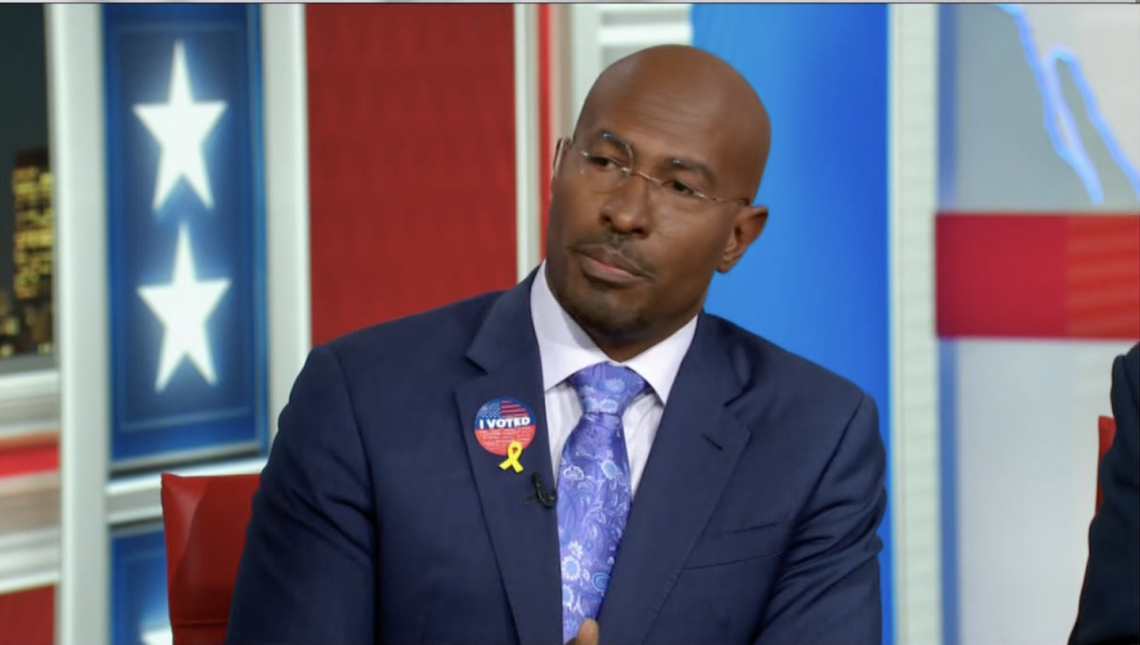Van Jones on CNN: raw emotions and reflections after Trump’s victory
The Morning of the Election
As dawn broke on a pivotal Wednesday morning, the nation found itself at a political crossroads. Donald Trump was on the cusp of securing another presidential victory, a reality that left many supporters of Kamala Harris grappling with disappointment and fear. Among those vocalizing this emotional fallout was Van Jones, a prominent commentator, who brought raw emotion and poignant reflections to the forefront during a CNN broadcast.
Speaking from the Heart
With a choked-up voice, Van Jones took the stage to discuss the profound sense of hurt experienced by those who had rallied behind Kamala Harris. Jones reflected on the emotional investment made by many, particularly Black women, who saw in Harris a figure of hope and a symbol of long-overdue recognition.
“I’m thinking about the people who are not a part of anybody’s elite who are hurting tonight,” Jones said. “There are African American women who know a little bit about being talked down to and having their economic dreams crushed.”
Echoes of Past Elections
Van Jones has long served as a mirror of blue-state sentiment, especially during the tense moments of election cycles. His deep connection to the aspirations and anxieties of numerous communities came to the surface in 2016 as well, when he declared Trump’s first-term victory a “white-lash against a changing country.” Jones’ commentary resonates because it taps into the visceral experiences and fears of many.
Despite the pain, Jones urged Trump to take steps to unite the country, emphasizing the need for inclusivity and reassurance. His call to recognize and address the fears of marginalized communities remains as relevant now as it did in 2016.
The Hurt of Rejection
In 2024, as the political landscape once again shifted, Jones delivered a similar plea, but with added urgency. He highlighted the pain of rejection felt by many who had invested their hopes in the election’s outcome.
“They thought tomorrow morning they’re going to be able to walk out there with their shoulders back, maybe able to breathe for the first time, to feel like they belong someplace,” Jones said. “They did everything that they knew how to do and it’s going to be harder for them to hold their heads up.”
A Broader Impact on Communities
Jones’ reflections extended beyond the immediate circle of Harris’s supporters. He spotlighted the LGBTQ community and undocumented immigrants, both of whom had been targeted during the campaign. The sense of shock and fear in these corners of the country was palpable, as they faced increased uncertainty in their lives.
“If you’re a parent of a trans kid, your child’s face was used as a springboard to power for somebody,” Jones observed. Similarly, he noted the daily struggles of undocumented individuals, who now faced heightened fear and insecurity.
Understanding the Real Impact
Jones emphasized that the election’s outcomes were not just about political victories or losses; they had real human costs.
“It’s easy to blow this off and say, ‘oh the elites, they’re going to get their comeuppance,'” Jones remarked. “It’s not the elites who are going to pay the price. It’s the people who woke up this morning with a dream and are going to bed with a nightmare.”
Reflections on the Importance of Inclusivity
Jones’ powerful words serve as a reminder of the importance of inclusivity and empathy in politics. His ability to articulate the deep-seated anxieties and hopes of diverse communities underscores the need for leaders who recognize and address these concerns. As the country moves forward, the voices of those who feel marginalized and unheard must be brought to the forefront of national conversations.
Sharing Emotions and Building Solidarity
Van Jones’ reflections remind us that political outcomes are deeply personal. They influence how individuals feel about their place in society and their future. These discussions are crucial for building a more inclusive and empathetic society.
Stay connected with us to keep the conversation going and to share your thoughts on the impacts of political shifts on different communities. It’s vital that we continue to listen, learn, and support one another through these ever-changing landscapes.

 Italian
Italian







